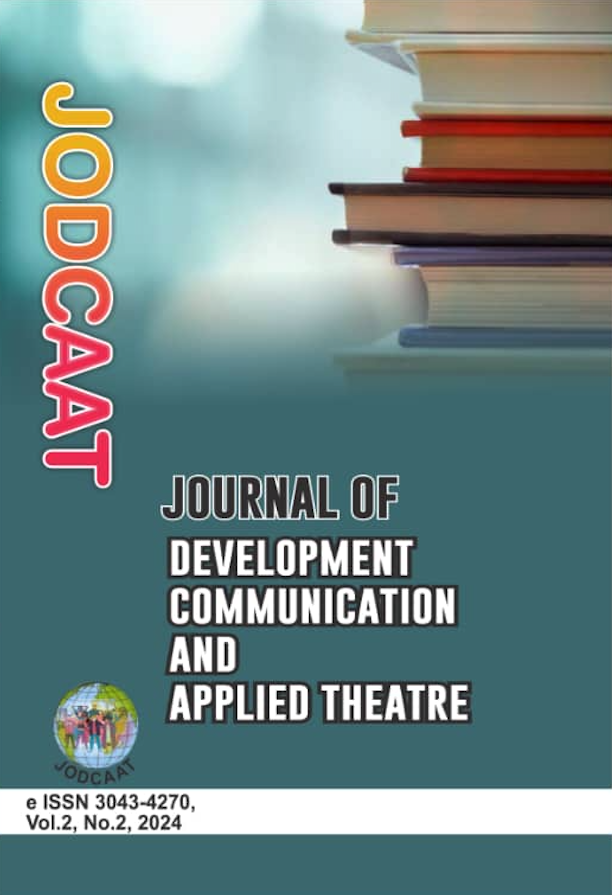UTILIZING DRAMA FOR PHONETICS EDUCATION: A STUDY OF TOTAL CHILD BIBLE SCHOOLARAROMI, ASA LOCAL GOVERNMENT AREA, KWARA STATE
Abstract
The role of drama in teaching basic educational curriculum cannot be overemphasized. Drama is an indispensable constituent of communication. It is used to convey messages across to listeners, viewers or audiences as the case may be. Drama also entertains, instructs, teaches morals, societal norms and values and heals as it is therapeutic in nature. Similarly, drama can be used to mould and develop a child's psyche. It can be used for the catch them young phenomenon because it can help in building the child from an early stage. This study interrogates the method and manner in which drama can be deployed for teaching phonetics (phonics or speech sound) in early child impartation of knowledge. It examines how phonics teachers are able to achieve or inculcate the right speech sound in the lives of these special creations. Using descriptive and interview methodologies, this study establishes that, drama is a pointer to teaching phonics and other subjects in elementary curriculum as it draws attention effortlessly and aids assimilation. Findings in this study reveal that pupils who are taught by a phonics teacher, who uses drama and illustrations as part of his or her teaching aids, pronounce words distinctively, enjoy better reading ability and understand better. The study concludes that the intellectual development of pupils at this stage is paramount; hence, drama and other visual aids are inevitable in facilitating phonics teaching and good pronunciation of English words.


